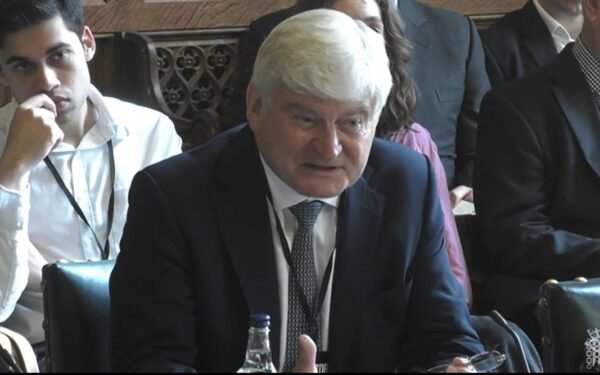In Beijing, the Third Plenum has ended and we have been treated to a lesson in Xiconomics.
The lesson comes as both sides of the political divide in America seem intent on trying to outdo one another in terms of unrelenting Sinophobia. As though imposing more and more tariffs on Chinese goods is going to resolve anything. Eight years ago, in the first wave of MAGA, presidential candidate Donald Trump promised to rebuild the rust belt, the West Virginian coal industry and the Detroit car industry by taxing the living daylights out of imports. Not much of this happened, not then and still not now.
We often use the term “whipping boy” yet few know where the word comes from. The whipping boy lived with young princes and the likes and, when the prince was naughty and deserved a spanking, it was his whipping boy who took the punishment on his behalf. Well, China is America’s whipping boy who takes the stick for many of the country’s economic failings. Punish China and America will be fine. There’s nothing new in that, we have been watching it for far too long.
What is new, however, is the way in which President Xi has, at the Third Plenum, decided that his country will turn its back on the US and instead pursue a path that sees exports to the West as a bonus but no longer as the main event. Rather than fighting the rising tide of tariffs, sanctions and whatever other hurdles the West might construct, China will internalise its economic potential, focus on its own growth and let the West’s once dominant economic power seep away.
And how will it do this? It will do it in a very Chinese way, which is with patience, patience and more patience. Beijing is looking at the long game in which technological advancement trumps current consumption when it comes to measuring economic success. In the latest edition of his “Letter to Shanghai”, John Browning of BANDS Financial, a Hong Kong-based commodities house, writes: “Overall, I cannot help feeling that Beijing is substantially negative on the western and US economic outlook. That the creation of protectionist barriers around the US and Europe will only bring trouble to those within its boundaries and not to those outside. In effect, the US and Europe cannot contain China, and risk a serious bout of inflation if they carry on in the same direction. There is no interest to support the Chinese economy on a general basis until it is necessary to do so. Washington will have to face that fact that China doesn’t care about trade tariffs, it has moved on. China judges itself in terms of economic power, not in domestic consumption.”
Is America turning up with a knife to a gunfight? Not quite, but it does risk turning up with one knife to face a dozen Kung Fu black belts. China not only has the sheer weight of numbers, it can also follow the rule that the best way to frustrate a bully is to look the other way and to not acknowledge their presence. The writings of Lao Tzu, the father of Taoism, have been with the Chinese for two and a half thousand years and it was he who wrote that, over time, soft water wears away even the hardest of rocks. I have over the years generated much mirth with my observation, crystalised from many years of first-hand experience, that Americans think of foreigners as Americans who speak a foreign language. President Xi has offered us a clear view of where he intends to plot China’s path to the future. Is Trump listening? Will Harris be listening?
Whether this is a coincidence or not is moot, but we hear the news this morning that Berkshire Hathaway, once having held 20% of the shares in China’s flagship EV manufacturer BYD, has sold another block of stock which takes its holding down to 4.9%. I’m sure there will be some who will be looking for a deeper meaning in this whilst I would suspect that, having ridden the shares from nowhere to their current price of HK$238 (up by just under 400% over the past five years), Grandmaster Buffett has decided that the best has been done and that it is time to redeploy funds to pastures new. That said, he might also have concluded that the imposition of punitive tariffs by either the US, irrespective of who is and will be President, or the EU or both will do his investment no good at all.
Has China, on the back of what we are now hearing, become investible again? If you are a western portfolio manager, whose performance is tracked on a monthly or quarterly basis, most probably still not. If you are thinking of putting something away for the grandchildren or the great-grandchildren and you want to immunise them against what Beijing sees as the West’s inevitable decline, then maybe yes.
Write to us with your comments to be considered for publication at letters@reaction.life





